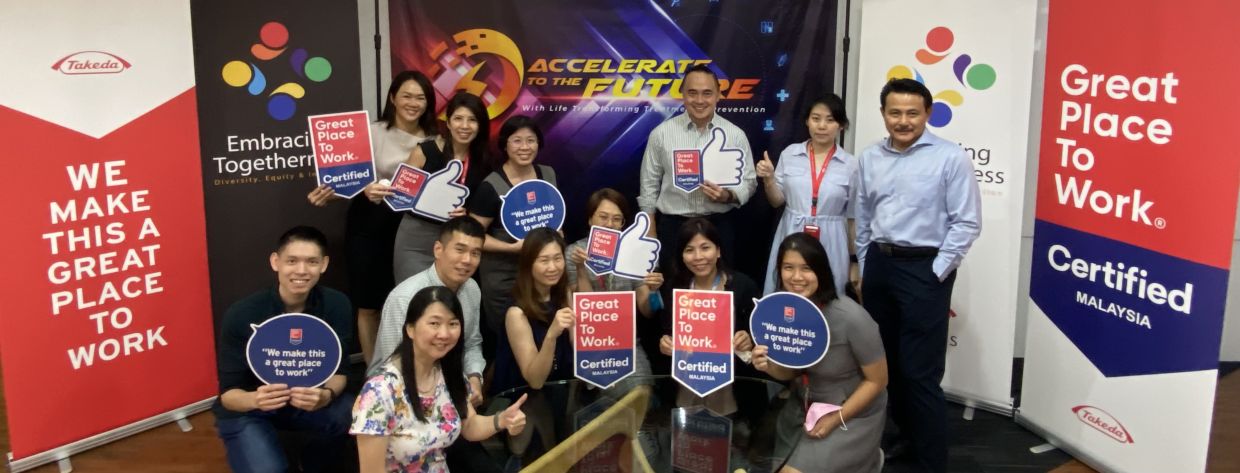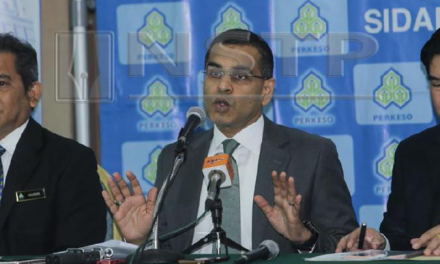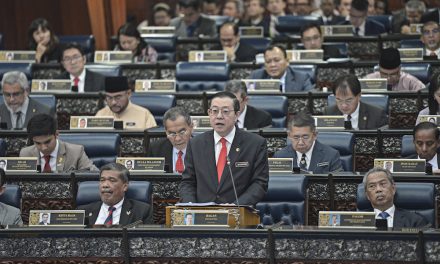IT has often been said that a company is only as good as its people.
This highlights the importance of a company’s workforce and how big a role they play in supporting the growth of a business.
Therefore, it stands to reason that retaining good employees is also an indication of a company’s success as this proves the employer has what it takes to keep its people fulfilled and satisfied as well as motivated to continue contributing to the company.
Having been certified as a Great Place To Work (GPTW), Takeda Malaysia Sdn Bhd (Takeda Malaysia) places great value on its employees and their contribution towards the company.
The GPTW certification is based on an employee survey that covers key indicators including credibility, respect, fairness, pride, and camaraderie.
Takeda employees rated the company highest in the following:
> Takeda Malaysia is a physically safe place to work.
> Employees are treated fairly across the board.
> Senior leaders are honest and ethical in business practices.
“At Takeda, our people are our greatest assets and they are the reason we are able to provide patients with access to our innovative medicines,” says Takeda VMAPS (Vietnam, Malaysia, the Philippines and Singapore) Cluster Head Igor Gomes.
“Driving a culture of excellence, we focus strongly on diversity, equity, and inclusion (DE&I) to ensure an exceptional people experience and to make Takeda Malaysia a great place to work.
“We empower our employees to grow in their roles and with the company, and we provide them with the opportunity to have a clear talent progression plan in place.”
“We also recognise that the new generation of talents are hungry for new challenges and want to be acknowledged for their contributions to the company,” says Gomes.
Some of the DE&I initiatives include inclusive leadership whereby line managers and senior leaders play a huge role in inculcating a strong sense of belonging among employees.
Meanwhile, stretch assignments allow experience seekers to broaden their skill-sets in various departments across Takeda.
To encourage lifelong learning, the company provides and encourages high-impact learning experience for all individuals and teams at all levels through its online learning platforms to enhance their technical knowledge or soft skills.
In contrast to many traditional companies, Takeda places “smart” trust in its employees. Instead of an eight-hour workday policy, the company focuses its people’s deliverables and empowers them to plan their time accordingly.
Alongside these initiatives, CSR activities that bring people together are organised. Such activities are aligned with the employees’ personal aspirations, which help them grow as individuals.
When it comes to being a desirable employer, VMAPS Human Resources head Peony Wong shares: “There are many factors that make a company a desirable place to work – remuneration and benefits being two of the obvious factors.”
“However, the people experience a company creates is also vital to the development and retention of employees.”
Aside from the DE&I initiatives, Takeda employees are also given additional perks. “Employees feel valued when they are given additional benefits that make the working environment and experience better. This includes areas of leisure, connectedness and support, among others,” Wong says.
She adds that Takeda is also a company that focuses on well-being, which is particularly more essential especially in the new normal.
“The pandemic has taught us a lot and this is one of them. At Takeda, we emphasise on improving four key dimensions of well-being – emotional, physical, social, and financial.”
“It is of utmost importance that we take care of ourselves and each other, so that we can continue to create better health for people and a brighter future for the world.”
Wong emphasises that trust is, by and large, a huge factor that attracts talent to work with the company. In this respect, Takeda provides plenty of autonomy and freedom to its people to work based on their own schedules, so long as they achieve their KPIs.
“We are also a flat organisation. We do away with bureaucracy and drive a ‘speak up’ culture and enhance the DE&I practices whereby our employees have a say in deciding the initiatives of the company and in the programmes we put in place,” Wong says.
“This cultivates a strong sense of inclusiveness, learning, connectivity, and belonging for the employees.”
She cites Takeda’s current hybrid work arrangement, which was developed based on employees’ collective feedback on what works best.
“As much as possible, we align the employees’ aspiration and the company’s policy as per global framework,” says Wong.









